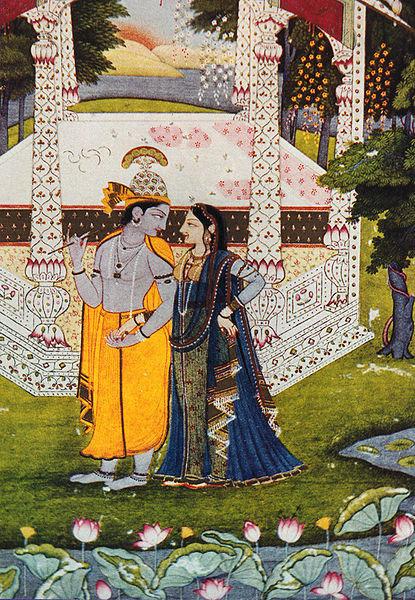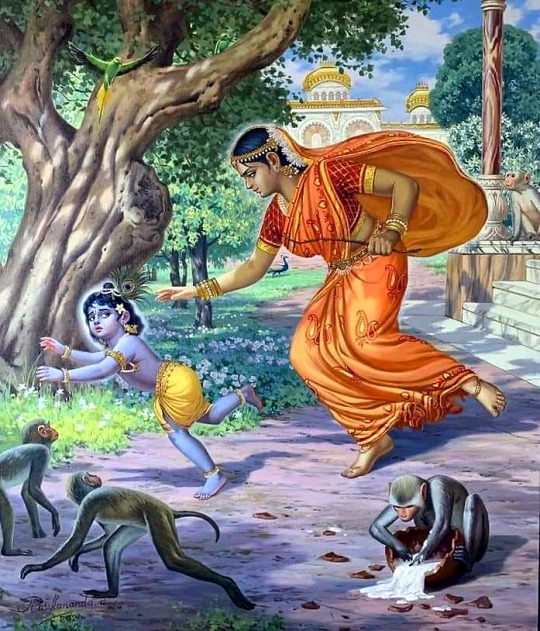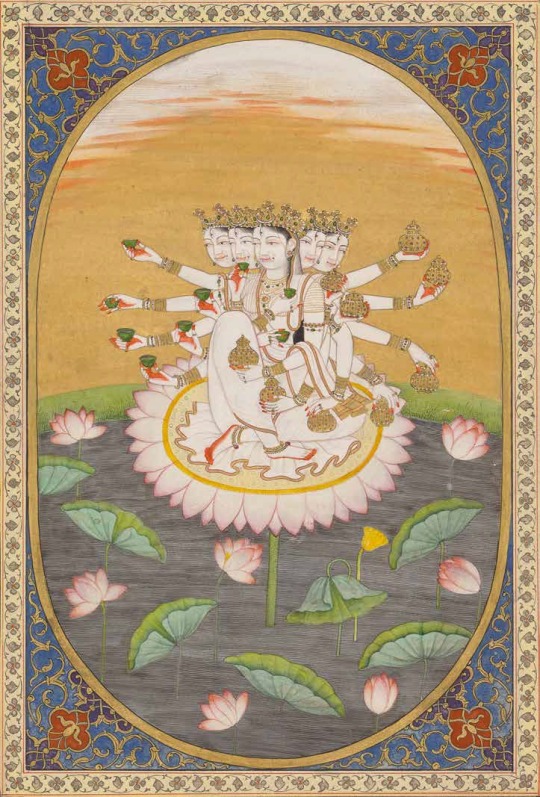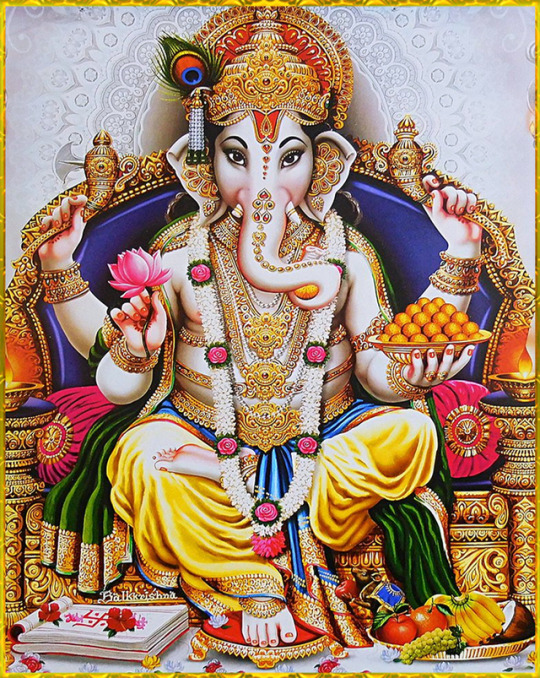Photo
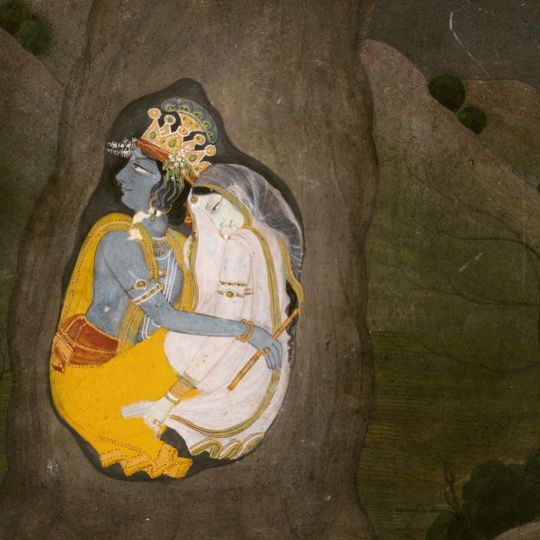
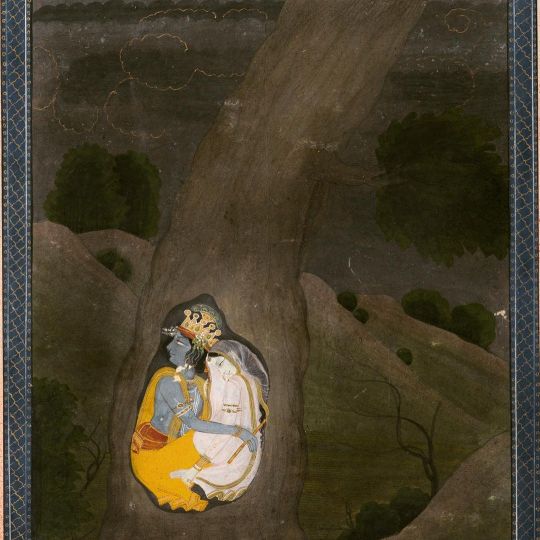
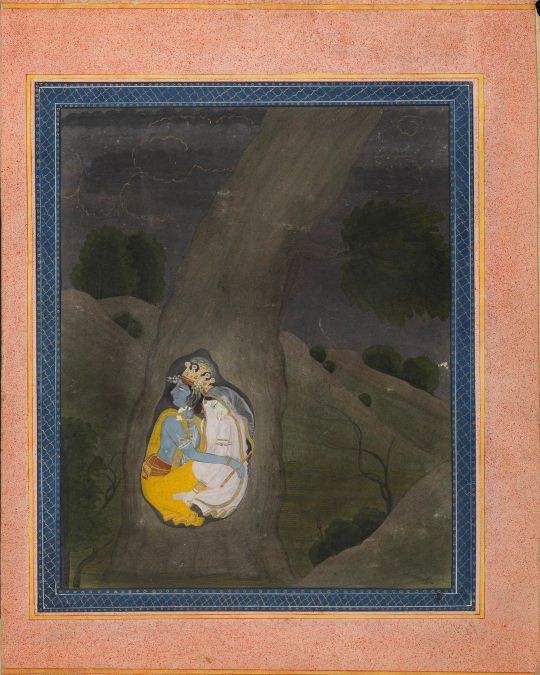
Radha and Krishna take shelter in a tree
Garhwal, 1820-1830
Forge and Lynch wrote :
As the weather turns and the clocks change, it gets invariably colder and darker and most among us want to curl up and hibernate/snuggle. This miniature has proved very popular with our visitors who perhaps recognise the coziness of the image, as well as marvel at the skill that has gone into portraying this tender moment in one of the great love stories, as Radha and Krishna hide from a storm in the hollow of a wombish tree.
www.forgelynch.com (via Instagram: Forge and Lynch)
266 notes
·
View notes
Text
Society needs the narrative of film to thrive. Entertainment and the film industry may not seem like vital or essential parts of our lives, but the reality is without proper narratives in the public consciousness, people will search for something to fill that
So that’s why it’s important for film to mimic and draw from reality, the news, media, etc to address these issues in a creative and artistic way.
2 notes
·
View notes
Photo
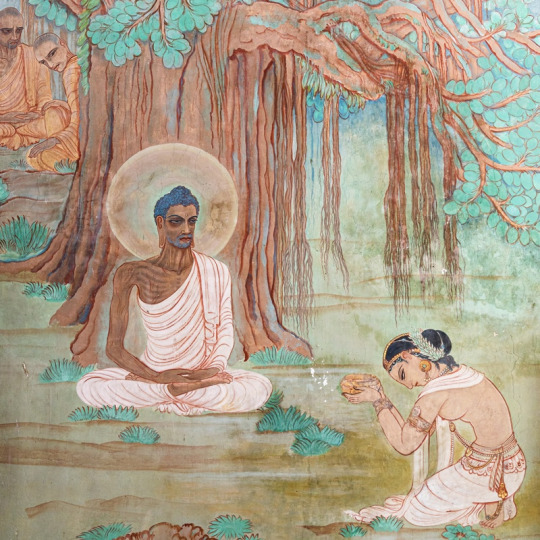
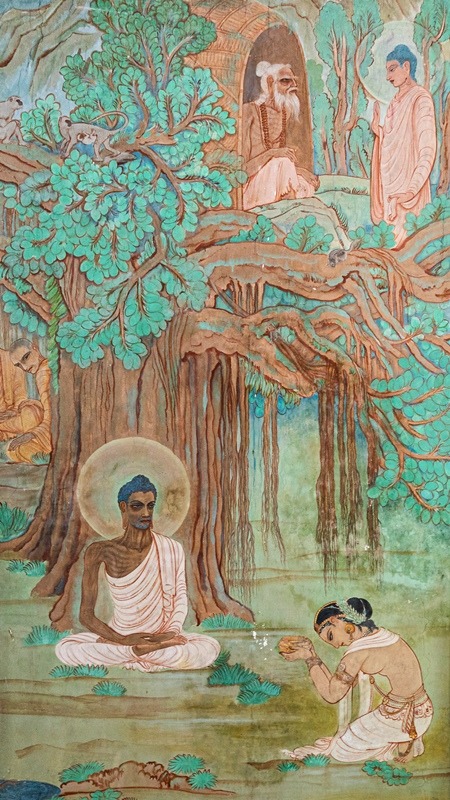
Buddha and Sujata by Kosetsu Nosu, mural from Mulagandha Kuti Vihara, Sarnath, photo by Kevin Standage
115 notes
·
View notes
Photo
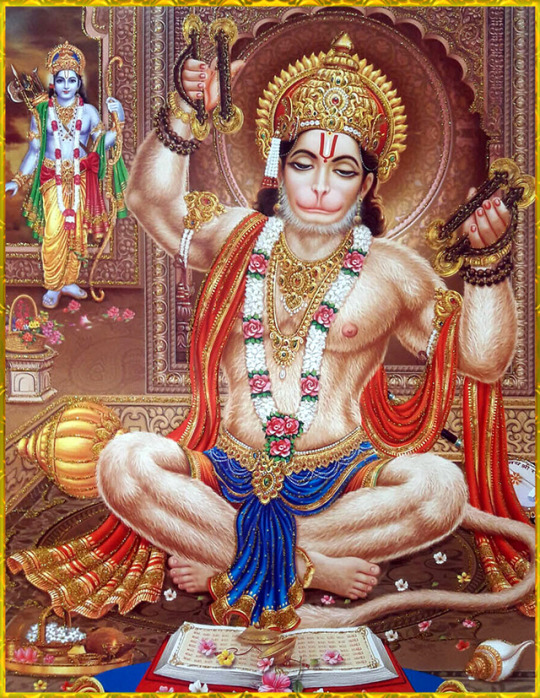
☀ HANUMAN ॐ ☀
“Those persons who always chant “Shri Ram”, “Shri Ram”, without any doubt would get victory as well as salvation and happiness.”~Ram sthava Raja
62 notes
·
View notes
Text
Sunday, 9 September 2018
The mind is quite an interesting thing. It has such a great effect on all other aspects of self. When the mind is not right, all other functions are out of balance. To have a sound mind, one must seek to understand what the mind is. Peel away its layers, unearth what is beneath the surface. Question what it is that is preventing you from being the superstar that you are meant to be. Meditate, reflect, keep a daily journal, go on a retreat. Do things that focus on YOU, because YOU are the main character in this story that is your life.
1 note
·
View note
Text
Silly 2:22 am poem
A certified self-saboteur
Enthusiastic eel expecting a euphemism
Instead gets some illiterate alliteration
Torn in half
Alleviation
Is a demonstration of the will conducting by the gifts and the powers
Yet seeking thrills for hours and hours leaves me rendering my self
Power
Less
Powerless to the equipment given to me
This body
A sleazy mechanism of meat pus blood and cum
I drag my bones along
Caustic
An agnostic narcissist
Asks for the cost of it
Cum on her tits
Now I’m pissed
Perhaps if she hadn’t insisted
My mind is twisted
Demented but please
Curb your enthusiasm
Polite mishaps
Costly mistakes
Can’t keep a great
Down in the dumps for too long
Just wait
Ironic is fate
Only mustard on his plate
Ironic is faith
Only mustard on his plate
3 notes
·
View notes
Text
“What do sad people have in common? It seems they have all built a shrine to the past and often go there and do a strange wail and worship. What is the beginning of Happiness? It is to stop being so religious like that.”
— Hafiz
1K notes
·
View notes
Text
Kali ma is scary
Her energy is unlike Narayana
Where Narayana is effulgent and bright
Kali ma is the polar opposite
Her energy is like a black hole
She is a goddess of death and destruction and it makes sense
(think yin and yang)
Jai Kali Ma!
There is a form I saw, this is a secret
This form of Kali, can only be described as some sort of giant Insect
With many many legs like a millipede
And many teeth, quite terrifying to look at
Kali can take many forms
One of her more purer forms or manifestations is literally a black hole.
Crazy stuff right?
She is the Goddess of death and destruction
And from a physics point of view it makes sense to have black holes to help organize the universe, space, and time.
0 notes
Text
A Comprehensive Study of Naguib Mahfouz’s novel the Journey of Ibn Fattouma
The Hero’s Journey as expressed in Naguib Mahfouz’s The Journey of Ibn Fattouma
UCSB – Comparative Literature 33: African Literature with Professor Jude G. Akudinobi
Badri Narayana Tulsiram
In the novel, The Journey of Ibn Fattouma by Naguib Mahfouz, Qindil Muhammad embarks upon a journey of self-discovery, traveling from his Homeland to the mysterious famed land of Gebel. Qindil Muhammad embarks on what Joseph Campbell would call “the Hero’s Journey,” in which the hero leaves home to return with the newfound knowledge discovered on his journey. In a manner of knowing, and not-knowing, Qindil sets off. In order to discover knowledge and to seek the answers to his nation’s problems, he must embark on a journey to distant lands with varying governmental, religious, & societal ideals unique to his known perspectives, on how to handle human-life and formulate a nation free from poverty and ignorance—all of which awaits him in Gebel.
Before commencing, Ibn Fattouma (ibn: Arabic word for “son of”), the eighth son of a wealthy merchant discusses with his father the issues that their nation of Islam faced. He asks his father on page 4, “If Islam is as you say it is, why are the streets packed with poor and ignorant people?”
His father replies,
“Islam today, […] skulks in the mosques and does not go beyond them to the outside world.”
“Then it is Satan that is controlling us, not the Revelation,” [Qindil] said.
“I congratulate you on your words […] They are greater than your years.”
His father continues to tell him of a journey he had taken in his youth through the lands of Haira, Halba, and Aman where he had to stop due to a civil war so was never able to reach the Land of Gebel. Intrigued, Qindil asks his father what is the significance to the Land of Gebel. To which his father replies, “It’s as though it were the miracle of countries, as though it were perfection itself, incomparable perfection” (page 6). To fit the hero’s journey model, this conversation between Qindil and his father can be seen as the “call to adventure” stage, in which our Hero Qindil Muhammad’s interest in the Land of Gebel is first aroused.
In his search for a utopian society, Qindil makes many stops along the way. He stops at the Lands of Mashriq where he discovers a sexually libertine society where partners are shared, and they live their lives according to the cycles of the moon. They think of the moon as a God, and it is according to its cycles that the people plan their lives. This varies and goes against the preordained Islamic monotheistic views that Qindil comes with. It’s as if he had gone from one end of the spectrum of liberality to its polar opposite. In this land, people walk around nakedly with no shame. On his first night in Mashriq, he meets the father of a girl who sets him to stay with her in their tent. Her father mentions that according to the current phase of the moon, that it was nigh time for his daughter to be arranged with a man, and sees Qindil fit to be that man.
The man’s daughter, Arousa and Qindil make five babies. He ends up spending a lot more time in Mashriq than anticipated. Qindil allows himself to be in the realm of what he does not know, and offers himself to the Mashriq people’s way of life. His openness allows him to find a lover and settle with a celebratory people. However, eventually he becomes absorbed back into the realm of what he does know—Islam. He wants to teach his first born son the ways of Islam, but is shunned to Haira and separated from his family for attempting to do so.
To elaborate on these two realms, the realm of knowing and the realm of not knowing, I am referring to Qindil’s mind and his perception. In his realm of knowing, there lies the knowledge of his Homeland—the doctrines of Islam. In his realm of not-knowing are the ideals of the Mashriq society, what to expect in Gebel, and all else that can be comprehended. One could argue that in a sense, he already knows all that in his realm of not-knowing—only he has not yet arrived to that point. Throughout his journey, the items in his realm of not-knowing eventually transfer over to his realm of knowing. Now, in his knowledge bank account he has gained the knowledge of what it is like to be a citizen of Mashriq, and what not to do when in Mashriq. What he chooses to do with his newfound knowledge in entirely up to him and to chance. This knowledge in the realm of knowing, is the knowledge that he will take back with him to home.
In the end of the novel, Qindil never actually returns home, as his mission the entire time is to get to the Land of Gebel and find the perfection he was looking for. But, where is home really for Qindil? One would argue that this image of perfection he is striving for is his notion of “home.” For home is where the heart is, and in his Homeland he found poverty & ignorance. In his home, his mental state of being, his pure consciousness, is where he seeks to find perfection. This mental image of home is where our hero will return to at the end of his journey.
In the novel, we never get a sense of how Qindil’s life is before he realizes that there is poverty and ignorance in his Homeland. However, one could argue that this poverty and ignorance is a product of his own Self. In order to escape this poverty and ignorance, he sets out away from home, but in the process he is only running away from himself. When he finally gets to where he is going, is he really there? What’s the point? Is this poverty and ignorance he noticed at home related to an inner struggle of his own, as reflected by the society he lives in? Why does he choose to teach his first son with Arousa they ways of Islam when he has seen how it has failed his people before?
This notion of “home” as a mental space makes it so that our hero never actually leaves home, but has merely created in his own mind an illusion of being lost. He has placed the solution to his confusion and invested the knowledge that he does not know (though in the realm of all-knowing, he knows) into this image of an ideal society—a perfect land, a utopian paradise, perfection—in the Land of Gebel. According to the hero’s journey, there is a mentor—an overseeing figure that knows, but may pretend to not know for the sake of the hero’s self-exploration. One could argue that this mentor for ibn Fattouma is his father. As in the beginning of the novel, his father mentions Gebel with a sense of awe and mysteriousity. He leaves Qindil’s interpretation completely open and allows him to dream and imagine what that Land may be—what utopia might feel like… home. This feeling is first created in the beginning of the novel by his father and mentor and is the driving force for our hero’s journey., Halba, Aman, and Ghuroub until he finally reaches the Land of Gebel.
0 notes
Photo

Shesh Narayan
Publisher: Modern Litho Works, Bombay (via ebay: Julieeshop)
53 notes
·
View notes
Text
“Be not the slave of your own past―plunge into the sublime seas, dive deep, and swim far, so you shall come back with new self-respect, with new power, and with an advanced experience that shall explain and overlook the old.”
— Ralph Waldo Emerson (via quotemadness)
1K notes
·
View notes
Photo
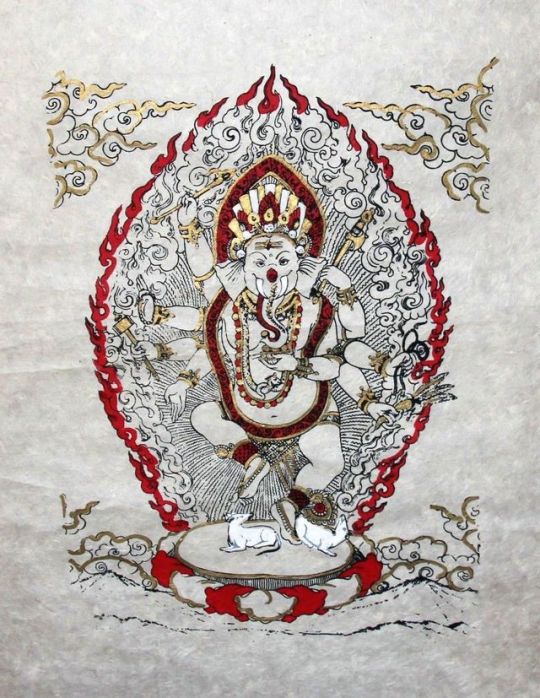
Dancing Ganesha
Painting on Lokta paper from Nepal (via ebay: ashrestha2012)
87 notes
·
View notes
